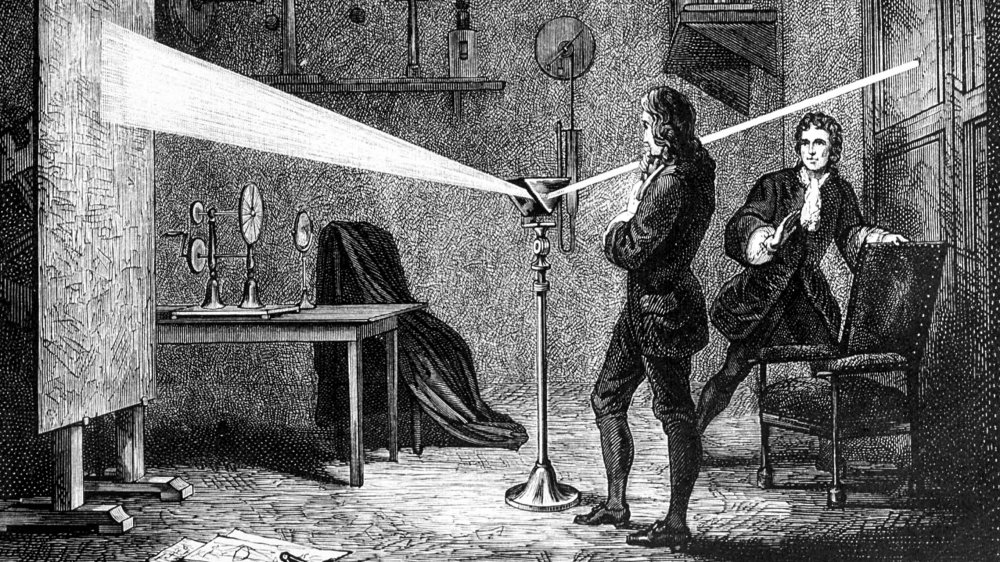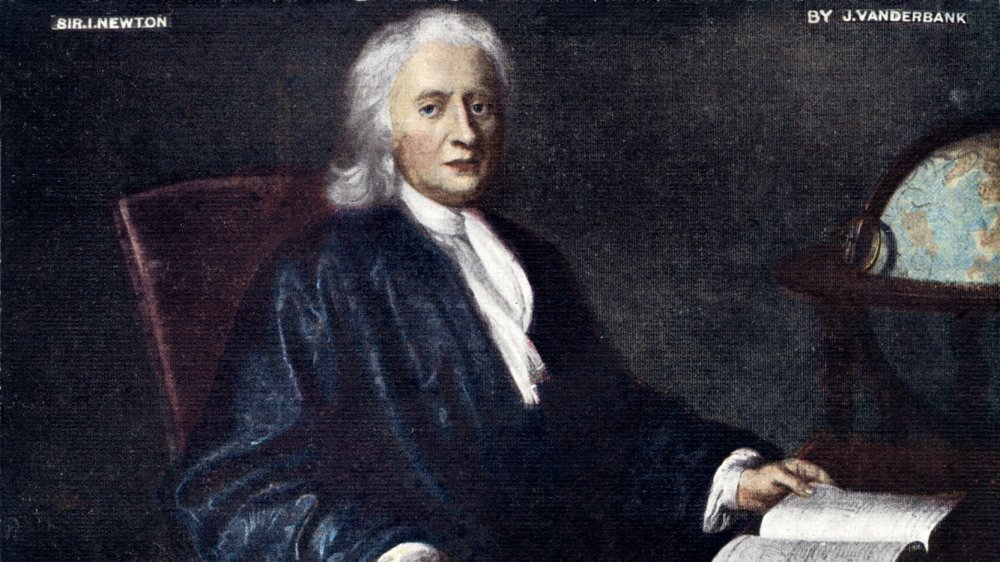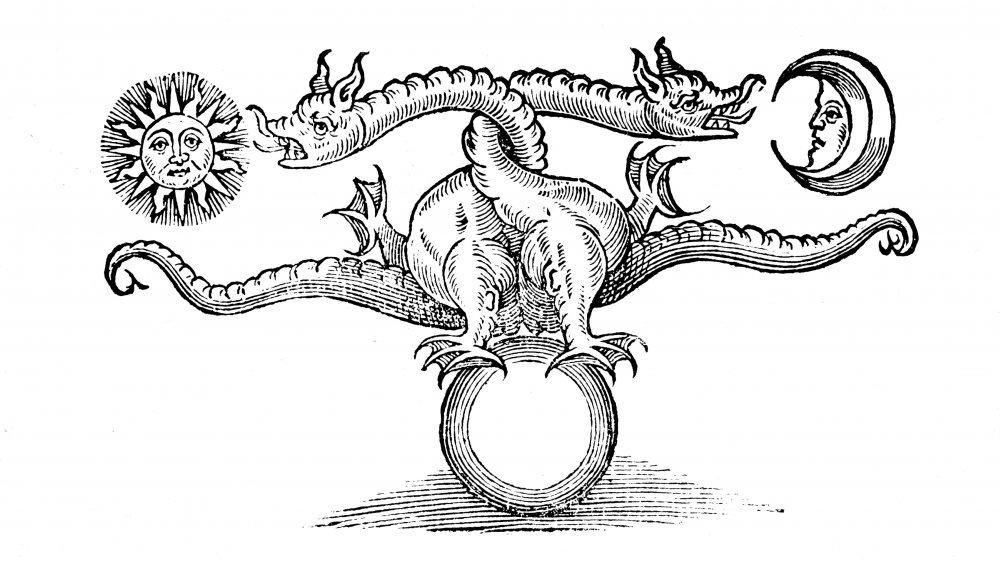The Dark Side Of Isaac Newton
We may receive a commission on purchases made from links.
Sir Isaac Newton, one of the greatest scientists of all time, once claimed: "I can calculate the motion of heavenly bodies, but not the madness of people."
We like to think that geniuses are just too damn smart to put a foot wrong in their personal lives. But the fact is, this isn't true. Whether you discover relativity, invent the lightbulb, or, in Isaac Newton's case, discover gravity, you are still human underneath it all, and prone to the same mistakes and irrational behavior that we lesser mortals have to carry around on our guilty consciences for decades.
Like us, geniuses are still the products of their surroundings, and Newton's upbringing wasn't the easiest. According to Biography, Newton's father –- also Isaac -– died before the boy was born, and his mother remarried when young Isaac was three years old. Isaac's new stepfather didn't care for the boy, however, and he was sent to be raised by his maternal grandmother. Though he went on to become one of the most prominent minds in western thought, his troubled upbringing would stay with him, and give him an insecure streak which would shape many of his social interactions in later life.
As well as this, Newton's religious convictions lay heavily upon him. According to the Newton Project, in 1662 the scientist composed a list -– addressed directly to God –- of all the sins he had committed in his life up to that point. It is obvious from details like this that Newton was, to put it mildly, a complicated figure.
Newton's righteous wrath and difficult personality
Taking Newton's deeply religious beliefs into account, perhaps the worst of the cardinal sins that the otherwise insular and private Newton was to commit in his lifetime was wrath. During his later career as the Master of the Royal Mint, according to Sam Kean's book The Disappearing Spoon: "A pious Christian, Newton prosecuted the wrongdoings he uncovered with the wrath of the Old Testament God, refusing pleas for clemency. He even had one notorious but slippery 'coiner,' William Chaloner... hanged and publicly disemboweled." Forbes claimed that a total of 28 counterfeiters were put to death under Newton's direction.
But though Newton's ruthlessness with criminals may be said to be the result of his own self-righteousness, he also displayed this aspect of his character in his personal life. Two instances of Newton's vindictive behavior have made it into the history books, and both concern the sullying of the reputations of rival scientists by whom the insecure Newton reportedly felt threatened. Robert Hooke and Gottfried Leibniz have now been revealed to have been targets of the scientist's ire, and it is now commonly agreed that Newton went out of his way to discredit the discoveries and tarnish the reputations of both men, even in the years following their deaths.
Isaac Newton: alchemist and heretic?
Considered one of the fathers of the enlightenment, is it tempting to think of Newton as a coldly rational scientist, who behaves in the way that prominent scientists such as Richard Dawkins or Bill Nye do today, the enemies of fuzzy logic or received information that is posited without valid evidence.
But in Newton's day, people didn't think quite like that. Indeed, it is fair to say that the scientific method as we know it today was still in its infancy, having been outlined in the writings of Francis Bacon just a few decades before Newton's birth.
Wired reports that, upon Newton's death, the scientist had left more than 150 novel-length books of notes to survive him, totaling some 10 million words. However, much of the material was suppressed by the Newton estate for centuries, as the documents contained much material that would go against his reputation as a prominent figure in the enlightenment.
Part of this is a long-running obsession with alchemy, an aspect that reported disappointed many of Newton's biographers and archivists. Not only this, but his notes also contained a great amount of heretical writing, which, at the time, could have been considered illegal. His extensive personal notes provide one of the widest surveys of the mind of any scientist, and what they reveal is a complicated and contradictory -– and ultimately human, but no less brilliant -– mind.


